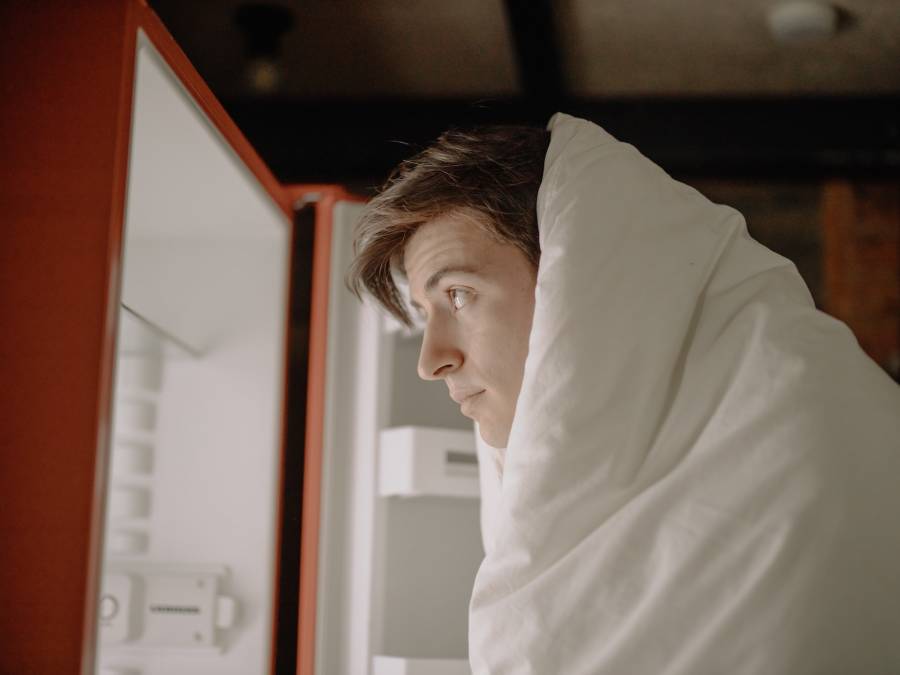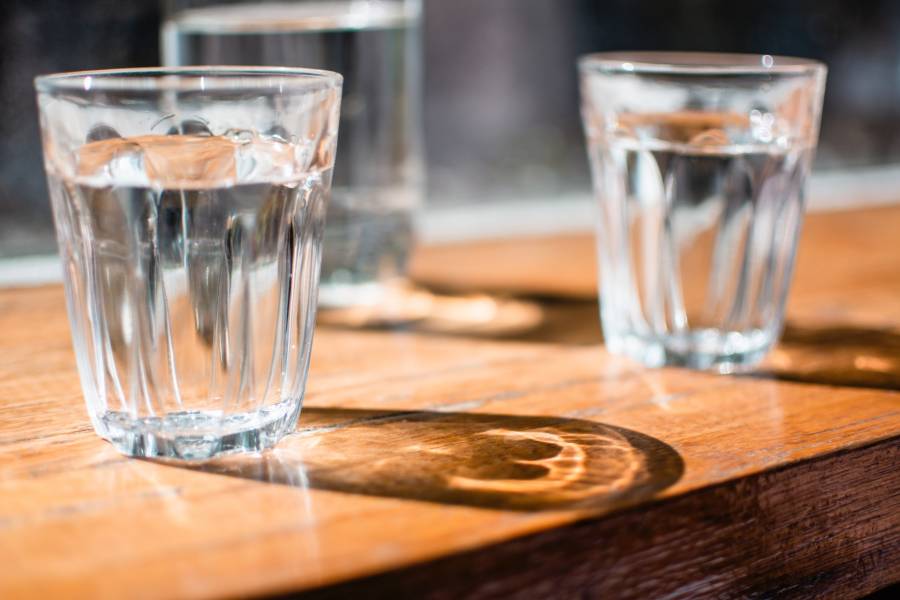You just got home from the gym, and your body desperately wants water.
You quickly get a glass and push it against the actuator for cool, fresh water from the fridge water dispenser, only to get sputtering or tiny water droplets.
It happens when the fridge water dispenser is slow. It can be annoying at the moment and causes stress to many fridge owners.

If your water dispenser is experiencing this, we have a solution.
We will mention the causes of a slow fridge water dispenser and the possible solutions. But before that, it is essential first to understand how a fridge water dispenser works.
What Is A Fridge Water Dispenser, And How Does It Work?
A fridge water dispenser is mounted on the fridge’s door for convenience and to increase storage space. Cool and fresh water from the dispenser flows after pushing the dispenser actuator with a glass.
But, without the correct plumbing, the dispenser won’t work. The technician installs a cold water supply pipe under the fridge’s floor or wall and fits the ends with a copper supply tube.
On one end, the pipe connects to a water fitting at the back side of the fridge. The other end has a shutoff valve to block the water tube during replacements and connects to a cold water pipe.
Water lines inside the refrigerator transport water to a small water filter. The filter clears contaminants by trapping the pollutants in activated carbon.
Water then flows into a reservoir for storage until you depress the dispenser. So, why is your fridge water dispenser slow?
Reasons Your Fridge Water Dispenser Is Slow
There are different reasons your water dispenser sputters when you push the glass against the actuator. It could be due to a dirty water filter, a damaged water line, or low water pressure.
Here are some causes of a slow fridge water dispenser, the signs, and solutions.
Water Filters
A refrigerator dispenser is fitted with water filters to remove sediment and other particles from the water. Inside the filters is activated carbon, where the water goes through, and dirt and residue are trapped.
With time, the dirt accumulates on the activated carbon. To keep the fridge water dispenser working, the owner must clean the dirt or replace the filters.
Failure to remove the already trapped dirt leads to clogging, reducing the efficiency of the dispenser.
Besides, clogged filters cause untreated water to pass to the reservoir, causing infections in your family members. Since there is no clear water passage due to the mineral deposits, you will notice a slow flow.
Signs You Have Clogged Filters
- When there is a slow water flow from the fridge dispenser
- A nasty taste in your water due to the pollutants and sediment
- Dirty water, which could be dark or cloudy ice
- There is an odor in the water due to the dirty filters
- It has been the past six months, and you have not changed the filters
Solution
Install a new water filter after every six months. It ensures no sediment clogs, allowing the water to flow freely. Water from the fridge dispenser will therefore flow at high speed.
Damaged Water Line
Broken or frozen water lines could slow your fridge water dispenser. The water line connects the fridge to the water source.
Although you can manually add water to your fridge water reservoir, the line is a more convenient solution.
Freezing in the water line happens mainly near the spot where the line dispenses water in the ice cube tray in the freezer. The ice tray could overflow and causes an ice blockage.
Another reason your water line is the reason for a slow fridge water dispenser is if it is damaged. Kinks in the line could be due to poor installation or aging.
These lead to cracks and leaks, lowering the efficiency of the lines.
If your water line freezes or is damaged, there will be minor or no water flow into the reservoir. It leads to a slow fridge water dispenser which can be annoying if you desperately want cool, fresh water.

Signs Of A Damaged Water Line
- Slow flow of water from the dispenser
- A build-up of ice in the ice cube tray
- If the freezer is too cold
Solution
To avoid freezing in the water line, ensure the freezer temperatures are between 0 and 10 degrees Fahrenheit. You should also check the line installation to ensure no folds are causing slow water flow.
If there are kinks due to old age, replace the water line.
Too Low Water Pressure
Too-high or too-low water pressure affects how the fridge water dispenser works. The high pressure causes water from the dispenser to splash out and pour on the floor, causing a mess.
Water pressure in the fridge goes lower than expected due to leaks. It happens mostly to kinked water supply pipes transporting water from the source to the reservoir.
When the water level is low, the dispenser cannot function properly.
Low water pressure can also be due to a non-functional water inlet valve. It reduces the water supply in the fridge dispenser, hence a slow flow.
The water pressure must be above 20 psi for the water dispenser to function well.
Signs Of Low Water Pressure
- Smaller ice cubes are being made
- Clogged water filter and valve
- The fridge water dispenser dispensing water too slow
- Hollow ice cubes and low ice cube production
Solution
Once you confirm the water pressure in your fridge is too low, check if the pipes are correctly installed. You can replace old worn-out pipes with new ones.
You should also replace the water filters every six months and ensure all water valves are open. Contact a professional for assistance if you cannot check your fridge water pressure.
Water Inlet Valve
The water inlet valve is at the rear side of the refrigerator. Water flows into your refrigerator from the main supply through it.
If this pipe does not work effectively, it stops the water supply in the fridge, causing low water pressure.
An issue that could cause inefficiency in the water inlet valve is the accumulation of debris. The debris clogs the valve reducing water flow into the refrigerator.
This dirt could be from clogged water filters, and it causes low pressure in the fridge dispenser.
The other reason your water inlet is not functioning well is that the valve is closed. It stops water flow into the refrigerator, leading to a slow dispenser.
The valve could also fail due to electrical failure. It happens if there is a disconnection of wires from the terminal.
Signs Of A Malfunctioning Water Inlet Valve
- There is poor production of ice cubes. The icemaker produces big chunks instead of individual cubes.
- The fridge water dispenser is slow, or is no water coming out
- The fridge water pressure is too low
Solution
Check if all the fridge water inlet valves are fully open. If there is clogging, scrub gently with a small brush or toothbrush.
You can also use distilled vinegar to soften any stubborn dirt.
Inspect the fridge’s wire connectivity to ensure there is electricity flow. Electricity can cause fatal shocks, so hire a professional to test electricity continuity in the connections.
NOTE
Before examining the fridge’s water inlet valve for clogs, ensure you first turn off the main water supply.
Takeaway
Once you realize that your fridge water dispenser is slow, contact a fridge expert. They will find the cause of the slow water flow and the possible solutions.
Avoid procrastinating on these repairs because they can lead to more significant problems.
